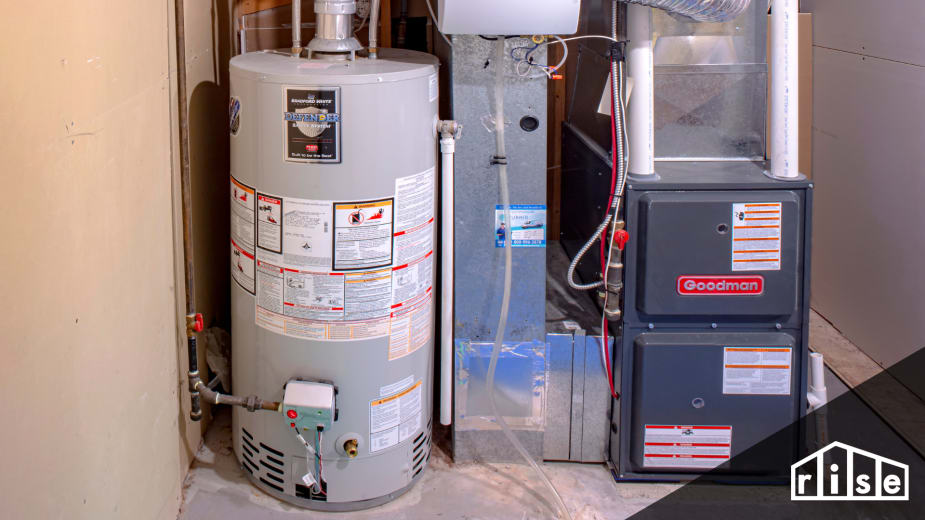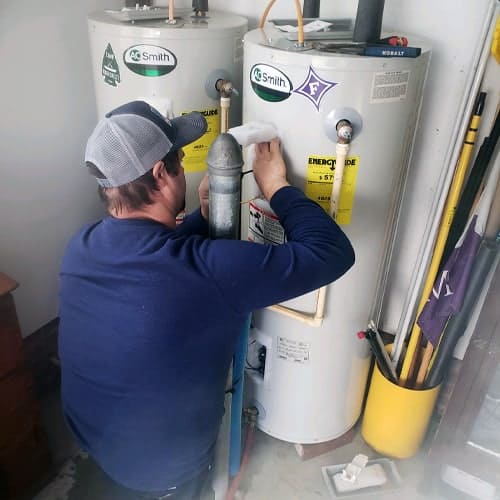Necessary Guidelines for Residential Property Owners Managing Malfunctioning Heating Units
Necessary Guidelines for Residential Property Owners Managing Malfunctioning Heating Units
Blog Article
Almost everyone may have their unique conception when it comes to Broken Water Heaters.

Whether it is located in the cellar or a different area, broken water heaters can trigger anxiety. Having no warm water supply is additionally troublesome.
Call the Plumber
After doing the very first two security actions, you have to call your plumber to come right away to fix a ruptured water heater. There are typically indications that your aging water heating unit has sediment buildup in the interior.
Rather, as soon as you detect these signs, have a specialist come to inspect your water heating unit container. Generally, water heating systems have a life-span of about 8 to 12 years.
Cut Off the Cold Water Supply
Cut off the storage tanks touch water supply from the resource. When your tank is in good condition, the chilly water quits loading up when the container is complete. If you can not locate it or reach it, you have to transform off that main water supply line outside your residential or commercial property.
Shut Off Power Source
Prior to calling the plumber, shut off a gas water heater by transforming the temperature dial. This will certainly prevent electrocution, particularly if there is a leak as water is a conductor. Commonly, the heating aspect closes off when the water hits a details temperature.
Clean Up Property
After calling the plumber, paper damages by remembering and also images so you can claim your property owner's insurance coverage. From there, start the instant clean-up. Secure any kind of essential personal belongings to stop more saturating. After that, get rid of any standing water to stop mold and mildew as well as mildew development. Make use of that to drain pipes the water if you have a submersible water pump. Otherwise, the standard container approach will certainly also function. Try to mop out every little thing, including baseboards and also walls. If you have an electric follower as well as dehumidifier, maintain them going to keep air flowing. This will certainly help deter mold and mildew development.
Remember, if you observe any type of concerns with your water heater, call the pros as soon as possible. You can not take this trouble gently due to the fact that a damaged thermostat can increase water temp to a precariously high level, resulting in unexpected burns. A broken heating unit pressure relief valve can also create a surge. For finest outcomes, get an annual check so your device gets examined, cleaned up, drained, and refilled, assuring optimum efficiency.
After doing the first 2 safety actions, you should call your plumber to come right away to deal with a burst water heating system. Instead, as quickly as you spot these indications, have actually an expert come to check your water heater storage tank. Prior to calling the plumber, closed off a gas water heater by turning the temperature level dial. If you have a completely submersible water pump, use that to drain the water. Keep in mind, if you observe any kind of concerns with your water heater, call the pros right away.
Is My Water Heater Broken?
The Water Heater is Old
No appliance will last forever. This includes a home’s water heater. During its lifespan, residents are going to face a situation where a new water heater installation will be necessary. The biggest problem with this is that most people are not sure when their water heater expires. Not knowing this can lead to serious risks if the unit begins to act up due to old age.
Most makes and models of water heaters will last between eight and 10 years. While 10 years is the age when water heater replacement is highly recommended, the need to replace the unit may occur before this time or after. If the unit doesn’t show any symptoms of a problem, it is a good idea to replace it at the 10-year mark (from the manufacture date).
Some of the symptoms that indicate a new unit is needed include rusting, leaks, noises, and a failure to heat up the water. Also, note that not all units have a 10-year life expectancy. The main exception to this rule is that a gas unit will last for six to eight years.
Rusty Heater Inlet Valve or Water
While steel is the strongest material on earth, it does have a weakness – rust. If corrosion occurs on a steel surface, it will begin to spread and eat through the steel in certain areas. On water tanks and pipes that are made of steel, rust is a warning sign of an impending leak.
The issue for many is trying to figure out if the rust is coming from the water heater or the pipes that lead to the faucet. If rust is seen, it is a clear indication that water heater service from the professionals is needed.
If rusty water appears out of the faucets in the bathtub or sink, it likely means a rusty water heater. If there is rust near the water inlet or the pressure relief valve, rust has likely developed inside the tank. If tap water appears rusty, it may be an issue with the pipes.
Strange Sounds from the Water Heater
Are there strange sounds coming from the tank? As a water heater gets older, rumbling noises may develop and get louder and louder as the water in the tank heats up. In homes where large amounts of hot water are used, the issue is likely going to be even more obvious when more serious issues arise. If there is a strange or loud noise coming from the unit, it is probably because of sediment buildup. A good way to remedy this problem is by flushing the heater. If this does not work, then a new unit may need to be installed.
Leaks
As a water heater gets closer to the end of its useful life, there is a higher chance there will be water around the tank. If there is water, this usually means leaks are occurring. Based on where the unit is located in the home, a leak may result in serious property damage.
Leaks are usually caused by expansions in the metal tank. The expansions occur as time passes and as the inside body of the tank is exposed to multiple heating cycles per day. When a fracture forms, the gap will be slight enough to hold the water in; however, in more serious situations, this will not be the case. If the tank is idle, the water will not leak but when the metal expands during each heating system, small amounts of water will get through the gap.

Do you like more info about What Do You Do When Your Water Heater Bursts?? Try leaving feedback further down. We'd be pleased to see your thinking about this post. We hope that you visit us again soon. Liked our piece? Please share it. Let somebody else find it. Thanks so much for going through it.
Stress-free fix? Contact. Report this page